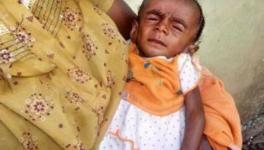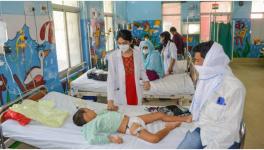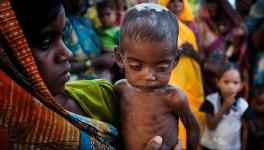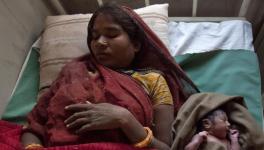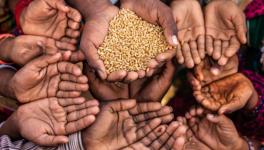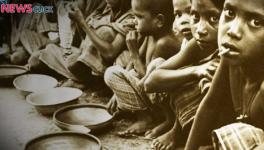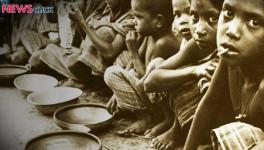India Made no Progress in Reducing Anaemia and Childhood Wasting, Says Report
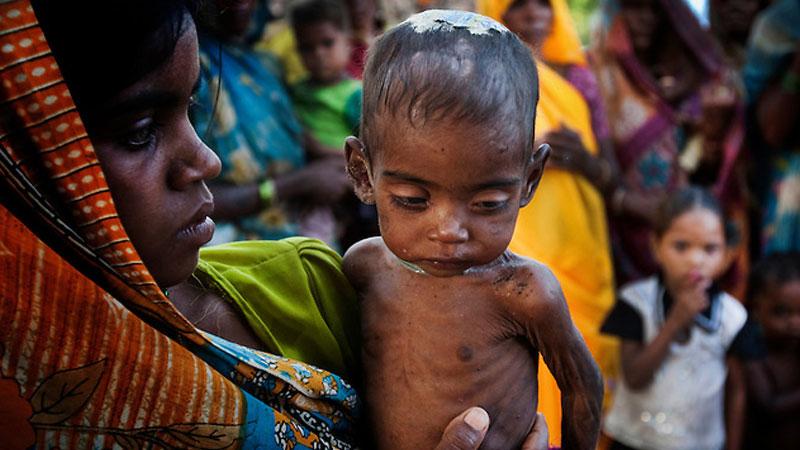
Image Courtesy: OrissaPOST
India has made no progress on anaemia and childhood wasting in the recent past, according to the 2021 Global Nutrition Report (GNR, 2021), which was released earlier this week. The country featured among the 161 countries documented in the report as having made no progress or was said to be worsening in reducing anaemia.
The report said that no progress has been made in India towards achieving the target of reducing anaemia among women of reproductive age, with 53% of women aged 15 to 49 years now affected. There has been a rise in the number of Indian women affected by anaemia since 2016. In 2016, 52.6% of Indian women were anaemic. But in 2020, 53% were found to be anaemic. The report added, "Meanwhile, there is insufficient data to assess the progress that India has made towards achieving the low birth weight target, nor is there adequate prevalence data."
India is 'on course' for meeting the exclusive breastfeeding target, with 58% of infants aged 0-5 months exclusively breastfed. Similarly, India is 'on course' to meet the target for stunting, but 34.7% of children under five years of age are still affected, which is higher than the average for the Asia region (21.8%). India has made no progress towards achieving the target for wasting, with 17.3% of children under five years of age affected, which is higher than the average for the Asia region (8.9%). The prevalence of overweight children under five years of age is 1.6%, and India is 'on course' to prevent the figure from increasing, according to the report.
Worldwide, 149.2 million children under five years of age are stunted, 45.4 million are wasted, and 38.9 million are overweight. Over 40% of all men and women (2.2 billion people) are now overweight or obese. There are countries showing some promising progress. However, anaemia levels are showing no progress or worsening in 161 countries. No country is on track to achieve the target of reducing salt intake or to halt the rise in adult obesity.
The COVID-19 pandemic has been fuelling the global nutrition crisis. According to the report, achieving healthy diets and ending malnutrition has become an even greater challenge than before, particularly for the most vulnerable groups such as people in poverty, women and children, and populations living in fragile states. At the same time, the report added, the strong links between poor metabolic health, including obesity and diabetes, and worse COVID-19 outcomes have highlighted the importance of improving nutrition for good health worldwide. "Tackling poor diets and malnutrition, and the underlying inequities, policies and systems that drive them, is, therefore, a critical part of recovering from the impacts of the pandemic and ensuring populations are resilient to such shocks in future," it said.
The GNR 2021 highlighted that the nutrition crisis is both a cause and a symptom of the climate emergency. "On one hand, our current diets are acting as major drivers of environmental pollution and resource demand. On the other hand, we are seeing global warming and pollution affecting access to food," it said.
The report highlighted the need for better and more granular data, including on financing, to fully understand the current state of nutrition, inform effective action, and ensure that impact can be measured and monitored.
Dr Renata Micha, Chair of the GNR Independent Expert Group, said in the foreword to the report, "The report's findings lay bare the unsustainability of the status quo and how we continue to face a global nutrition crisis. Poor diets and resulting malnutrition in all its forms are unacceptably high across the world, creating one of the world's greatest current societal challenges. The need for bolder, sustained and better-coordinated action on nutrition that goes far beyond the nutrition community has never been greater. When accounting for the vast and interconnected health, economic and environmental burdens, this global nutrition crisis is a reality we can no longer afford to ignore."
Get the latest reports & analysis with people's perspective on Protests, movements & deep analytical videos, discussions of the current affairs in your Telegram app. Subscribe to NewsClick's Telegram channel & get Real-Time updates on stories, as they get published on our website.











